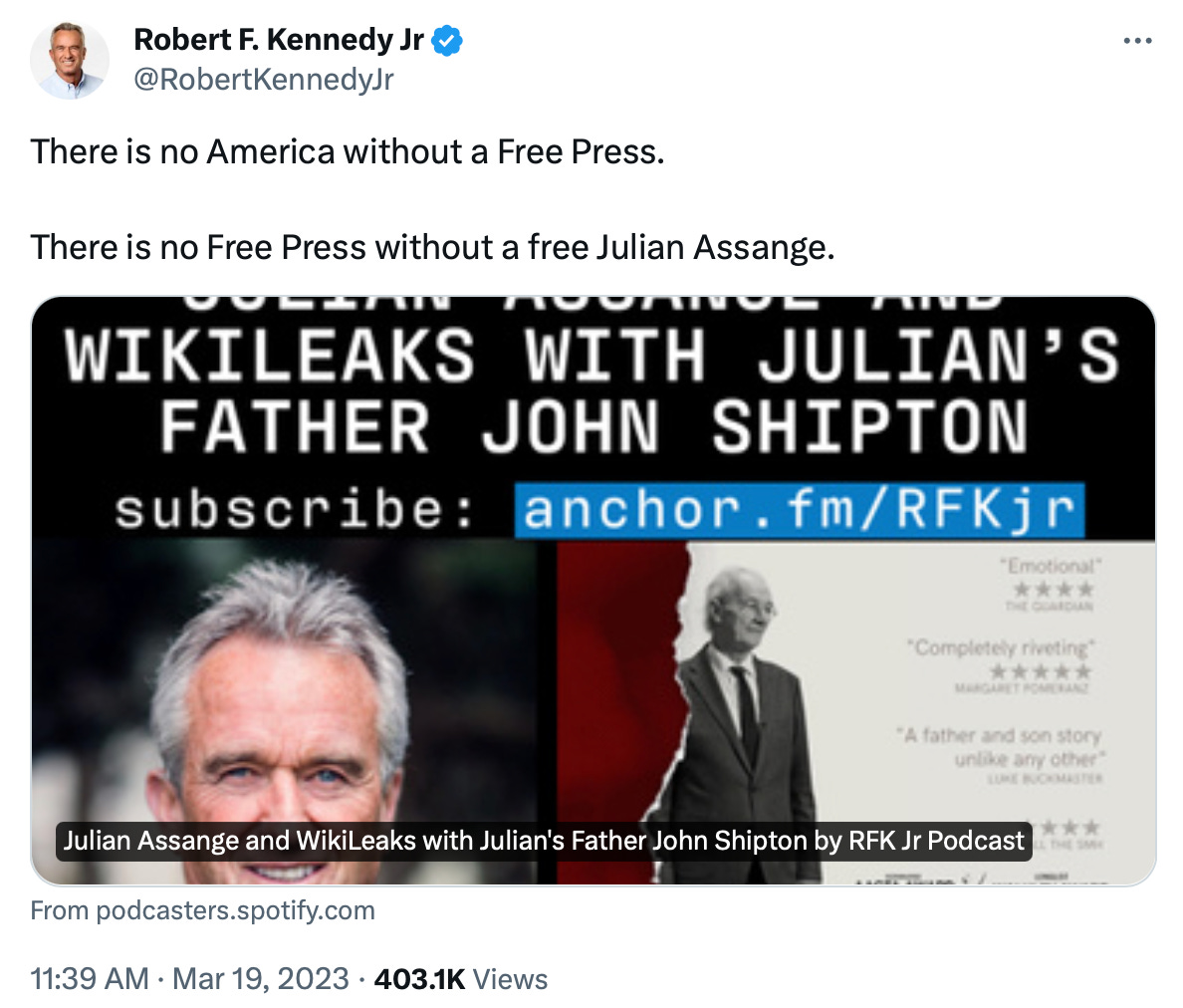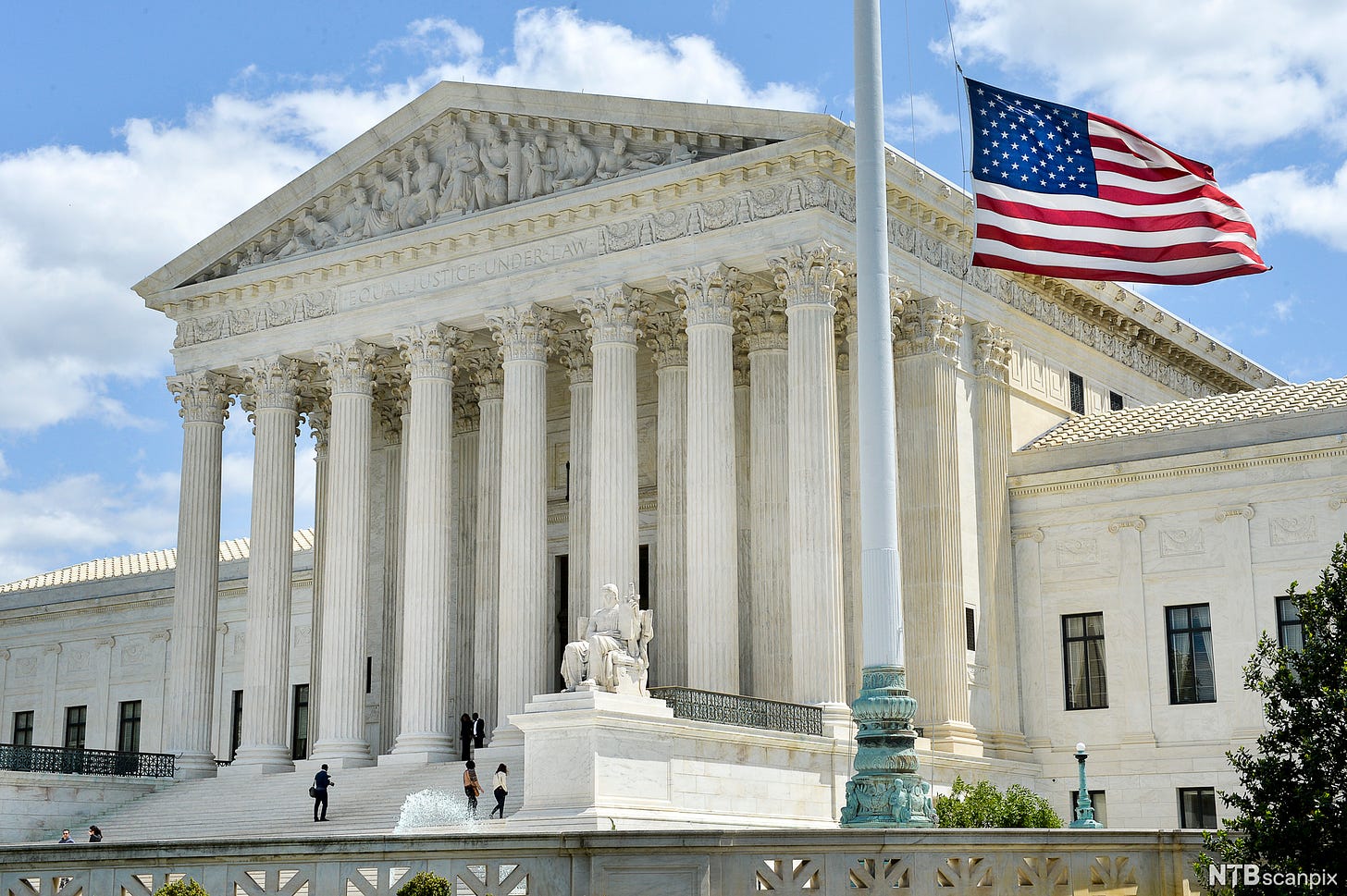The Censorship Industrial Complex Taken to Court – The US Government is on Trial in 2024
Media Outlets and States Are Suing Over First Amendment Violations Perpetrated by an Unholy Alliance of Government Agencies and Big Tech
The latest chapter in the exposé of a Censorship-Industrial Complex is now unfolding through three major legal cases that seek to prove the US government violated the First Amendment rights of Americans and US media outlets by coercing Big Tech’s social platform censorship.
Counter-disinformation is plainly counter-dissent, which imperils the First Amendment.
In March of last year, state-sponsored censorship enabled by Big Tech took center stage in Washington, DC during House Committee hearings on Capitol Hill. Presidential candidate Robert F. Kennedy Jr. testified that “On January 23, 2021, three days after Joe Biden was sworn in as President, Clarke Humphrey (Digital Director for the White House Covid Response Team) sent an email to Twitter flagging one of my tweets and instructing Twitter to “move on the process of having it removed ASAP.”
Three weeks later, Kennedy was de-platformed from Instagram (owned by Facebook/Meta). Kennedy was forcibly divorced from over 600,000 followers for “repeatedly sharing debunked claims about the coronavirus or vaccines,” as alleged by a Facebook spokesperson who spoke with the AP.
Kennedy v. Biden → Missouri v. Biden + Murthy v. Missouri
The loss of his Instagram account led Kennedy, Children’s Health Defense, and a Louisiana resident to file a lawsuit against the Biden Administration that was subsequently consolidated into Missouri v. Biden and filed by two GOP-led States: Missouri and Louisiana. The suit alleges that the Biden administration was "working with social media giants such as Meta, Twitter, and YouTube to censor and suppress free speech, including truthful information, related to COVID-19, election integrity, and other topics, under the guise of combating 'misinformation.’” This lawsuit, now Murthy v. Missouri, moved to the Supreme Court in a process summarized by The Hill here.
Last year, Kennedy filed an unsuccessful motion in the Supreme Court to allow his own personal testimony and arguments regarding what he regards as an abuse of power by the US government and the social network tech titans. Of the nine Supreme Court justices, only Samuel Alito wanted to hear what Kennedy had to say, in Alito’s own words, “to prevent the irreparable loss of his First Amendment rights” as a presidential candidate. Here is the Amicus brief filed by Kennedy’s lawyers in the Missouri v. Biden case.
Dr. Anthony Fauci is one of the Murthy v. Missouri defendants, and the subject of Kennedy’s bestseller, The Real Anthony Fauci: Bill Gates, Big Pharma, and the Global War on Democracy and Public Health. During his November 2022 deposition, Fauci was at a loss for words, saying “I don’t recall” 174 times.
While Kennedy was censored, Fauci was censoring himself, invoking his rights protected by the Fifth Amendment, in a case now before the Supreme Court.
Aside from Fauci, the other defendants are President Joseph R. Biden Jr., Surgeon General Vivek H. Murthy, and Health & Human Services Secretary Xavier Becerra.
Plaintiffs are led by the Attorneys General of Missouri, Eric S. Schmitt and Louisiana, Jeffrey M. Landry. The other plaintiffs are Aaron Kheriaty, author of The New Abnormal: The Rise of the Biomedical Security State (2022), Jay Bhattacharya, a professor of medicine, economics, and health research policy at Stanford University, Jill Hines, Co-Director of Health Freedom Louisiana, a consumer and human rights advocacy organization, Jim Hoft, founder and editor of The Gateway Pundit, one of the top conservative news outlets in America, and Martin Kulldorff, a Swedish biostatistician and professor of medicine at Harvard Medical School since 2003.
Kennedy’s congressional testimony and his motion to present his own arguments before the Supreme Court regarding government censorship have raised the profile of this battle over First Amendment rights. Supreme Court justices will hear opening oral arguments on March 18, 2024.
The Murthy v. Missouri case was followed by historic lawsuits filed by media outlets Consortium News in October and the Federalist/DailyWire in November, as reported by Reuters in December.
Consortium News v. NewsGuard/Biden Administration
Consortium News sued NewsGuard, holding a press conference on October 23. NewsGuard, a company that assigns scores to websites alleging to rank their credibility, stands accused of “acting jointly or in concert with the United States to coerce news organizations to alter viewpoints” regarding Ukraine, Russia and Syria, and on behalf of the Biden Administration carrying out “censorship and repression of views” that diverged from US policies and positions.
State of Texas, The Federalist & The Daily Wire v. State Department, et al.
The State of Texas, The Federalist, and the Daily Wire sued the US State Department in November for conspiring with NewsGuard to censor American media companies claiming that the government agency funded censorship technology designed to bankrupt US media outlets that have dissented against government policies. Read the 67-page complaint here.
The evidence gathered by plaintiffs’ attorneys in these cases, including what was originally uncovered in the Twitter Files and CTIL Files, will be presented in court in 2024. Plaintiffs claim that the Department of State, working through the Global Engagement Center, sought to censor The Federalist and The Daily Wire because they were critical of, or challenged, government policy – a First Amendment violation.
Together, these three lawsuits represent a Maginot line of defense of the most basic rights enshrined in the US Constitution and a challenge to the government’s abuses of power during, and since, the COVID lockdowns. Without free speech and without a free press, there is no democracy.

2024 is the year the judiciary branch of the federal government will determine whether the US government’s actions during the COVID era were constitutional or whether they violated the First Amendment and thus require legal redress and remedy.




